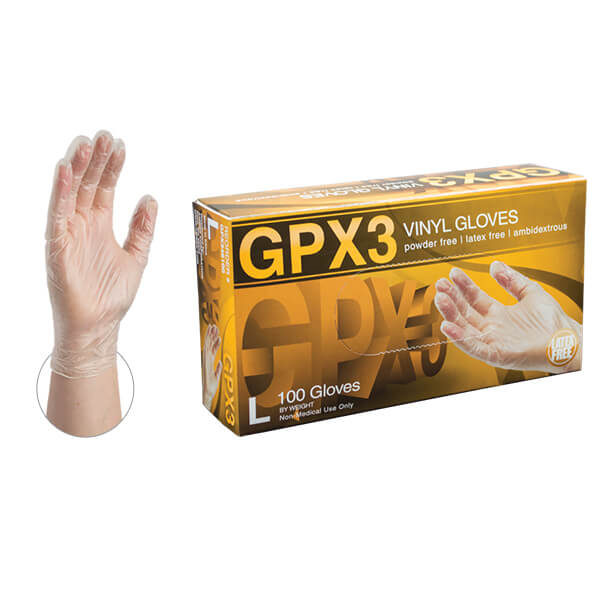Workers in the janitorial and sanitation industries have particular need for adequate hand protection, because they regularly use harmful chemicals and substances to complete their job. With that being said, we want to help you ensure you’re offering the best possible protective glove for you and your employees.
The main hazards your gloves will need to protect against are chemicals found in virtually all sorts of cleaners, from glass cleaners to harsh phosphoric acid, and blood borne pathogens. Workers can become contaminated by handling anything with infected bodily fluids on different surfaces or sanitary napkins. For the sake of these hazards, you can see why it is so important to have proper protective gloves while working in janitorial and sanitation applications.
So, what are the best types of gloves to protect against these hazards?
One of the first things to consider is the fact that workers in these industries will be changing gloves multiple times per day, because for each task they will likely need a fresh pair of gloves to prevent cross contamination. This means, you’ll most definitely need disposable gloves.
Vinyl is a glove material that is widely used for janitorial and sanitation applications. They are inexpensive, and come in different levels of quality, which means you’ll be able to find the protection you need. Vinyl gloves can stand up to chemicals that are hydrofluoric, phosphoric and 10% concentrated nitric acid. Some vinyl gloves are treated to be antimicrobial, which gives an extra bit of protection.
Nitrile and Latex gloves are also quite common in janitorial and sanitation industries. Nitrile gloves are inherently chemical resistant, and can protect against many harmful substances containing 38% concentrated hydrochloric acid, sodium hypochlorite, and 2-butoxyethanol. Not only that, but nitrile gloves offer superb puncture resistance. Latex gloves offer many of the same protective features as nitrile gloves, but they are not as widely used because so many people have allergies to that rubber.
In all situations, make sure that you run an in-house test with your gloves to ensure that they really will hold up to the chemicals and products that you use on a regular basis. It is always better to be safe than sorry!




